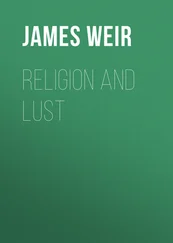James Walsh - Religion And Health
Здесь есть возможность читать онлайн «James Walsh - Religion And Health» — ознакомительный отрывок электронной книги совершенно бесплатно, а после прочтения отрывка купить полную версию. В некоторых случаях можно слушать аудио, скачать через торрент в формате fb2 и присутствует краткое содержание. Жанр: foreign_prose, foreign_religion, Здоровье, foreign_antique, на английском языке. Описание произведения, (предисловие) а так же отзывы посетителей доступны на портале библиотеки ЛибКат.
- Название:Religion And Health
- Автор:
- Жанр:
- Год:неизвестен
- ISBN:нет данных
- Рейтинг книги:4 / 5. Голосов: 1
-
Избранное:Добавить в избранное
- Отзывы:
-
Ваша оценка:
- 80
- 1
- 2
- 3
- 4
- 5
Religion And Health: краткое содержание, описание и аннотация
Предлагаем к чтению аннотацию, описание, краткое содержание или предисловие (зависит от того, что написал сам автор книги «Religion And Health»). Если вы не нашли необходимую информацию о книге — напишите в комментариях, мы постараемся отыскать её.
Religion And Health — читать онлайн ознакомительный отрывок
Ниже представлен текст книги, разбитый по страницам. Система сохранения места последней прочитанной страницы, позволяет с удобством читать онлайн бесплатно книгу «Religion And Health», без необходимости каждый раз заново искать на чём Вы остановились. Поставьте закладку, и сможете в любой момент перейти на страницу, на которой закончили чтение.
Интервал:
Закладка:
Lord Rayleigh, the physicist and mathematician, professor of experimental physics at Cambridge and then Tyndall's successor as professor of natural philosophy at the Royal Institution, who, after having been secretary of the Royal Society for some ten years, was elected to what has been called the highest official position in the scientific world—the presidency of the Royal Society—wrote in answer to a question: 2 2 I owe this and a number of other quotations in this chapter to Tabrum "Religious Beliefs of Scientists," London, 1911.
"I am not able to write you at length, but I may say that in my opinion true Science and true Religion neither are nor could be opposed.
"A large number of 'leading scientists' are not irreligious or anti-Christian. Witness: Faraday, Maxwell, Stokes, Kelvin, and a large number of others less distinguished."
Practically all the men whose names are connected with the evolution of electricity in the nineteenth century were thorough-going believers in revealed religion. Galvani, Volta, Coulomb, Ohm, Ampère, Oersted, Faraday, Sir Humphry Davy, and many others are among the believers. Faraday once declared when the dark shadow of death was creeping over him, "I bow before Him who is the Lord of all, and hope to be kept waiting patiently for His time and mode of releasing me, according to His divine word and the great and precious promises whereby His people are made partakers of the divine nature."
Earlier in life, in the very maturity of the intellectual powers which made him immortal in science, lest perhaps some one should suggest that he had lost his mental grasp toward the end, he said: "When I consider the multitude of associate forces which are diffused through nature; when I think of that calm and tranquil balancing of their energies which enables elements, most powerful in themselves, most destructive to the world's creatures and economy, to dwell associated together and be made subservient to the wants of creation, I rise from the contemplation more than ever impressed with the wisdom, the beneficence, and grandeur beyond our language to express, of the Great Disposer of all!"
It would be easy to multiply quotations such as this from the great original workers in modern electricity. Hans Christian Oersted, for instance, the great Danish scientist, to whom we owe the discovery of the "magnetic effect" of the electric current, the demonstration of the intimate relationship between magnetism and electricity, whose name all Europe rang with in the early part of the nineteenth century, was a man of really great genius and scientific penetration and yet of deeply fervent piety. He did not hesitate to say that genuine knowledge of science necessarily produced a feeling of religious piety towards the Creator. Lord Kelvin once quoted some words of his in this regard on a memorable occasion, which are particularly to our purpose here:
"If my purpose here was merely to show that science necessarily engenders piety, I should appeal to the great truth everywhere recognized, that the essence of all religion consists in love toward God. The conclusion would then be easy, that love of Him from whom all truth proceeds must create the desire to acknowledge truth in all her paths; but as we desire here to recognize science herself as a religious duty, it will be requisite for us to penetrate deeper into its nature. It is obvious, therefore, that the searching eye of man, whether he regards his own inward being or the creation surrounding him, is always led to the eternal source of all things. In all inquiry, the ultimate aim is to discover that which really exists and to contemplate it in its pure light apart from all that deceives the careless observer by only a seeming existence. The philosopher will then comprehend what, amidst ceaseless change, is the Constant and Uncreated, which is hidden behind unnumbered creations, the bond of union which keeps things together in spite of their manifold divisions and separations. He must soon acknowledge that the independent can only be the constant and the constant the independent, and that true unity is inseparable from either of these. And thus it is in the nature of thought that it finds no quiet resting place, no pause, except in the invariable, eternal, uncaused, all causing, all comprehensive Omniscience.
"But, if this one-sided view does not satisfy him, if he seeks to examine the world with the eye of experience, he perceives that all those things of whose reality the multitude feels most assured never have an enduring existence, but are always on the road between birth and death. If he now properly comprehends the whole array of nature, he perceives that it is not merely an idea of an abstract notion, as it is called; but that reason and the power to which everything is indebted for its essential nature are only the revelation of a self-sustained Being. How can he, when he sees this, be otherwise animated than by the deepest feeling of humility, of devotion and of love? If any one has learned a different lesson from his observation of nature, it could only be because he lost his way amidst the dispersion and variety of creation and had not looked upwards to the eternal unity of truth."
The great contemporary and colleague of Oersted in the demonstration of the intimate relations between magnetism and electricity who was quite as outspoken as the Danish scientist in his recognition of the relations of science and religion, was the Frenchman Ampère, whose name was chosen as a term for one of the units of electrical science, because of his great original work in extending our knowledge of electricity. This choice of his name was made by an international congress of scientists who felt that he deserved this very great honor. Ozanam, to whose thoroughly practical Christianity while he was professor of foreign literatures at the University of Paris we owe the foundation of the Conferences of St. Vincent de Paul, which so long anticipated the "settlement work" of the modern time and have done so much for the poor in large cities ever since, who was very close to Ampère and indeed lived with him for a while, said that, no matter where conversations with him began, they always led up to God. The great French scientist and philosopher used to take his broad forehead between his hands after he had been discussing some specially deep question of science or philosophy and say: "How great is God, Ozanam; How great is God and how little is our knowledge." Of course this has been the feeling of most profound thinkers at all times. St. Augustine's famous vision of the angel standing by the sea emptying it out with a teaspoon, which has been rendered so living for most of us by Botticelli's great picture, is but an earlier example of the same thing. One of Ampère's greatest contemporaries, Laplace, reëchoed the same sentiment, perhaps in less striking terms, when he declared that "What we know is but little; while what we do not know is infinite."
Writing of Ampère after his death Ozanam, who knew him best, brought out this extremely interesting union of intellectual qualities, his science, his faith, his charity to the poor which was proverbial, and the charming geniality of his character, as well as his manifold human interests, in a passage that serves very well to sum up the meaning of the great Frenchman's life.
"In addition to his scientific achievements this brilliant genius has other claims upon our admiration and affection.... It was religion which guided the labors of his mind and illuminated his contemplations; he judged all things, science itself, by the exalted standard of religion.... This venerable head which was crowned by achievements and honors, bowed without reserve before the mysteries of faith, down even below the line which the Church has marked for us. He prayed before the same altars before which Descartes and Pascal had knelt; beside the poor widow and the small child who may have been less humble in mind than he was. Nobody observed the regulations of the Church more conscientiously, regulations which are so hard on nature and yet so sweet in the habit. Above all things, however, it is beautiful to see what sublime things Christianity wrought in his great soul; this admirable simplicity, the unassumingness of a mind that recognized everything except its own genius; this high rectitude in matters of science, now so rare, seeking nothing but the truth and never rewards and distinction; the pleasant and ungrudging amiability; and lastly, the kindness with which he met every one, especially young people. I can say that those who know only the intelligence of the man, know only the less perfect part. If he thought much, he loved more."
Читать дальшеИнтервал:
Закладка:
Похожие книги на «Religion And Health»
Представляем Вашему вниманию похожие книги на «Religion And Health» списком для выбора. Мы отобрали схожую по названию и смыслу литературу в надежде предоставить читателям больше вариантов отыскать новые, интересные, ещё непрочитанные произведения.
Обсуждение, отзывы о книге «Religion And Health» и просто собственные мнения читателей. Оставьте ваши комментарии, напишите, что Вы думаете о произведении, его смысле или главных героях. Укажите что конкретно понравилось, а что нет, и почему Вы так считаете.












